Proceedings of the 10th World Congress
on Recent Advances in Nanotechnology (RAN 2025)
06 - 08 April, 2025 | Barcelona, Spain
The plenary and keynote information for the 10th World Congress on Recent Advances in Nanotechnology (RAN 2025) is as follows:
Plenary Speakers
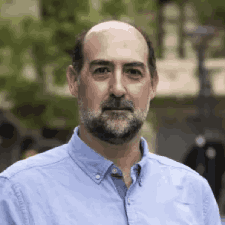
Dr. Raul Arenal
Laboratorio de Microscopias Avanzadas (LMA), Spain
ICNNFC 2025 Plenary Speaker

Dr. Michael Xianfeng Chen
The University Of Edinburgh, Uk
NDDTE 2025 Plenary Speaker
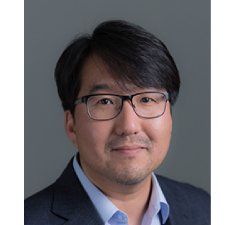
Dr. Seungpyo Hong
University of Wisconsin–Madison, USA
NDDTE 2025 Plenary Speaker
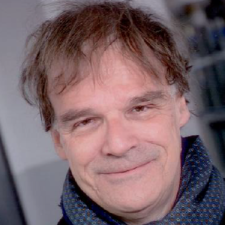
Dr. Philippe Knauth
Aix Marseille University, France
ICNNFC 2025 Plenary Speaker
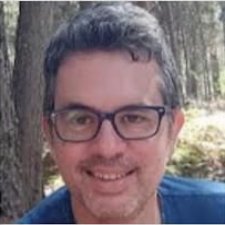
Dr. Borja Sepúlveda
Institute of Microelectronics of Barcelona (IMB-CNM-CSIC), Spain
ICNNFC 2025 Plenary Speaker
Keynote Speakers

Dr. Sourav Bhattacharjee
University College Dublin, Ireland
NDDTE 2025 Keynote Speaker
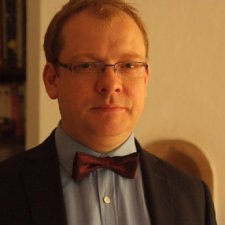
Dr. Witold Musial
Wroclaw Medical University, Poland
NDDTE 2025 Keynote Speaker
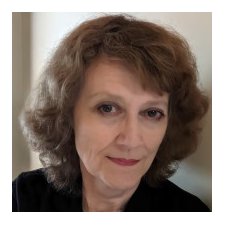
Dr. Maria Stepanova
University of Alberta, Canada
NDDTE 2025 Keynote Speaker

Dr. Raul Arenal
Laboratorio de Microscopias Avanzadas (LMA), Spain
ICNNFC 2025 Plenary Speaker
Dr. Arenal is the Group leader of the Nanoscopy on Low Dimensional Materials (NLDM) at the Instituto de Nanociencia y Materiales de Aragón (INMA, CSIC-Universidad de Zaragoza) and since 2018, he is the Coordinator of the TEM area of the Laboratorio de Microspcopias Avanzadas (LMA, Universidad de Zaragoza, member of the ELECMI, Spanish National facility (ICTS) for Advanced Microscopies). Dr. Raul Arenal received his Ph.D. in Solid State Physics from Univ. Paris-Sud (now Paris-Saclay, Orsay, France, 2005) and in 2013, he obtained his Habilitation (HDR) also at this University. From April 2005 to August 2007, he joined the Electron Microscopy Center in Argonne National Laboratory (ANL, USA) as post doctoral fellow. In 2007, he became research scientist (Chargé de Recherches) at the CNRS (France), working at the LEM, CNRS-ONERA (Chatillon, France). From September 2010 to December 2011, he was visiting scientist (sabbatical position) at the Laboratorio de Microscopias Avanzadas (LMA) at the Instituto de Nanociencia de Aragon (INA) of the Universidad de Universidad de Zaragoza (Spain). Since 2012, DR. Arenal is on leave from the CNRS, and he is currently ARAID senior research scientist at the LMA-INMA-Universidad de Zaragoza. In addition, since 2007 he is visiting researcher at the ANL (USA).
Topic of Plenary: Nanoscopic Investigations of Low Dimensional NanoMaterials via TEM
Return to Top ⇑
Dr. Michael Xianfeng Chen
The University Of Edinburgh, Uk
NDDTE 2025 Plenary Speaker
Prof Michael Xianfeng Chen received his MSc and PhD from National University of Singapore, and University of Oxford, respectively. He is currently working in the Institute for Bioengineering in the School of Engineering at The University of Edinburgh as a Professor, Chair of Therapetic Engineering, and also serves as the Director of Industry Engagement of School of Engineering. Prof Chen’s research is focused on biomaterials, biomedical engineering, and the application of nanomaterials in biology and medicine. In these areas, he has been working on physical (microneedle & nanoneedle arrays) and chemical (nanomedicine) tools for drug delivery, 3D printed microfluidic devices, and biosensing. He has published over 130 papers in peer-reviewed international journals, majority in field top journals. These publications generated a google scholar h-index of 59 and >9000 citations. Additionally, he has 2 book chapters and 12 granted patents in drug delivery technologies in various major countries and regions, primarily in the USA.
Topic of Plenary:Cost-Effective and Rapid 3D Printing Of Microfluidic Devices for Biomedical Applications

Dr. Seungpyo Hong
University of Wisconsin–Madison, USA
NDDTE 2025 Plenary Speaker
Dr. Seungpyo Hong is the Milton J. Henrichs Chair and Professor of Pharmaceutical Sciences and Director of Wisconsin Center for NanoBioSystems (WisCNano) at University of Wisconsin-Madison (UW-Madison). He holds appointments as Adjunct Professor at University of Texas Southwestern Medical Center, University of Illinois Chicago (UIC), and Yonsei University, Seoul, Korea, while serving as Associate Editor for Nanomedicine: Nanotechnology, Biology and Medicine of Elsevier. Dr. Hong is also active in entrepreneurship, co-founding a biotech startup called Capio Biosciences. He graduated from Hanyang University in Seoul, Korea with B.S. and M.S. degrees in polymer engineering in 1999 and 2001, respectively. He then received his PhD in Macromolecular Science and Engineering from University of Michigan in 2006 and joined MIT as a postdoctoral associate in the laboratory of Prof. Robert Langer. From 2008 to 2014, he was an Assistant Professor at UIC where he was promoted to Associate Professor with tenure in 2014, and subsequently joined the UW-Madison faculty as Full Professor in 2016. To date, Prof. Hong’s research has culminated in over 120 peer-reviewed articles that have accumulated a total of over 21,000 citations (h-index: 54), 1 co-edited book, 8 book chapters, and 23 issued or pending patents, while delivering over 200 invited talks worldwide. His scientific contributions have been well recognized, resulting in him receiving honors, including 2022 Inducted Fellow of American Institute for Medical and Biological Engineering (AIMBE) and 2012 New Investigator Award from American Association of Pharmaceutical Scientists (AAPS).
Topic of Keynote: Dendritic Nanoparticles for Effective Immune Checkpoint Inhibition

Dr. Philippe Knauth
Aix Marseille University, France
ICNNFC 2025 Plenary Speaker
PK obtained his PhD in Physical Chemistry (Dr. rer. nat., Saarland University) in 1987 and the Habilitation in Materials Science (Aix Marseille University) in 1996. He is member of the Editorial Board of several international journals: “Journal of Electroceramics” and “Journal of Materials Science: Materials for Energy” (Springer), “Frontiers in Energy Research” and “Membranes” (MDPI). Appointed visiting scholar at MIT in 1997-98 and 2013 and Invited professor at the National Institute of Materials Science (Tsukuba, Japan) in 2007 and 2010 and at the University of Rome Tor Vergata in 2009, 2011 and 2022. PK is Fellow of the French Chemical Society (“Membre Distingué”) and recipient of the Grand Prix Franco-italien (SCF PACA/SCI Liguria-Piemonte-Valle d’Aosta, 2021), the IAAM Medal (International Association for the Advancement of Materials) 2018, the Silver Medal of the Warsaw University of Technology (2015) and the CNRS Bronze Medal (1994). He published 230 articles in international journals (>10900 citations, h index = 52), 7 co-edited books, 6 patents and 85 invited, keynote and plenary talks at international conferences.
Topic of Keynote: Carbon Quantum Dots Based Electrocatalysts for Oxygen and Carbon Dioxide Reduction Reactions

Dr. Borja Sepúlveda
Institute of Microelectronics of Barcelona (IMB-CNM-CSIC), Spain
ICNNFC 2025 Plenary Speaker
Dr. Borja Sepulveda received his PhD degree in Physics from the Complutense University of Madrid in 2005. In 2006 he started a two years Postoctoral stay at the Bionanophotonics and Bioimaging group in Chalmers University of Technology (Göteborg, Sweden). In 2008 he joined the Institut Català de Nanociencia i Nanotecnologia (ICN2) as Research Fellow, where he got a Ramon y Cajal grant in 2009. In 2012, he got a permanent CSIC researcher position at the ICN2. In 2021 he moved to the Institute of Microelectronics of Barcelona (IMB-CNM-CSIC).
Topic of Keynote: Opto-Magnetic Nanosystems For Biomedical, Energy and Environmental Applications

Dr. Sourav Bhattacharjee
University College Dublin, Ireland
NDDTE 2025 Keynote Speaker
Dr. Sourav Bhattacharjee graduated with MBBS (Bachelor of Medicine and Surgery) in 2004 from the Medical College and Hospital, Kolkata (India) in 2004. After a brief period of Resident training in Orthopedic Surgery, he joined MSc in Biomolecular Sciences/Cell Biology in the Vrije Universiteit Amsterdam (2006). In the meanwhile, he moved to the Edinburgh (UK), where he worked under the supervision of Prof. Vicki Stone at the Napier University. Upon finishing MSc, he began his Ph.D. in the Wageningen University (Netherlands) in 2008 which he successfully defended in 2012 with a very good thesis grade and quite a few research papers. Following that, he worked for a year as a postdoc at the University of Twente (Netherlands). From March 2014 he joined Prof. David Brayden’s group in UCD as a postdoc working on the EU FP7 funded TRANS-INT consortium trying to develop nanoparticulate drug delivery platforms for oral insulin delivery. From February 2016 Sourav joined the UCD School of Veterinary Medicine as an Assistant Professor in Veterinary Anatomy while also trying to develop his own niche of research encompassing a broad range of nanobiotechnology and advanced microscopy tools for effective diagnostic and drug delivery platforms. Sourav maintains an active research group with a strong presence of enthusiastic and scientifically motivated students (PhD, Bachelors and Masters), while have already been named at the Top 2% Scientists by Elsevier/Stanford University rankings for consecutive five years (2020–2024). Sourav is also an Editorial Board member of the Journal of Anatomy and Nature Scientific Reports.
Topic of Keynote: Impact of Surface Chemistry on Insulin Agglomeration

Dr. Witold Musial
Wroclaw Medical University, Poland
NDDTE 2025 Keynote Speaker
Witold Musiał is a Full Professor and Head of the Department of Physical Chemistry and Biophysics, Wroclaw Medical University, Poland. He earned his PhD in the field of pharmaceutical sciences, focusing on ionic equilibria in polymeric systems proposed for topical drug delivery. Professor Musiał continued postdoctoral research in the frames of Marie Curie Fellowship at the Technical University of Maribor and at the Institute of Macromolecular Chemistry in Prague, where he explored synthesis and evaluation of thermosensitive microstructures and nanostructures for medical applications. His research interests include controlled drug delivery and evaluation of physical phenomena observed in acting drug dosage forms. Scientific team of professor Witold Musiał is concentrated on several topics in that field: surface and interfacial phenomena in pharmaceutical sciences, electrochemistry in pharmaceutical sciences, synthesis and application of polymers as hydrophilic matrices, nanoparticles and microparticles for controlled and targeted drug delivery, R&D of pharmaceutical and medicinal products and pharmaceutical analysis. Professor Witold Musiał is lecturer in the field o pharmaceutical sciences, including physical chemistry and biophysics for pharmacists, physics in pharmacy for Qualified Persons in pharmaceutical industry, and pharmacokinetics. Coworker of pharmaceutical industries. Visiting researcher and lecturer of universities in Europe and USA.
Topic of Keynote: Electrical Conductivity as a Control Factor in Selected Processes of Polymerization and Application of Micro and Nanoparticles

Dr. Maria Stepanova
University of Alberta, Canada
NDDTE 2025 Keynote Speaker
Maria Stepanova graduated from Lomonosov Moscow State University (Physics) in 1984 and received a PhD in Physical and Mathematical Sciences from the National Center for Surface and Vacuum Research in Moscow in 1992. This was followed by a DrSci degree in Physical and Mathematical Sciences from St. Petersburg Polytechnic Institute and the Higher Attestation Commission of the Russian Federation in 1998. Since 2005, Dr. Stepanova has been an Adjunct Professor at the Department of Electrical Engineering of the University of Alberta in Canada. Her group has extensively contributed to cross-disciplinary research at the interface of engineering, physical sciences, and life sciences, with a special focus on micro- and nanoscale fabrication processes and self-assembly mechanisms for creating complex functional structures. Their work spans a broad range of topics, including ultra-high resolution fabrication of nanostructures, processes at nano-biological interfaces, and structural dynamics in biological polymers. Current research interests include investigating the complex processes involved in the excitation of plasmonic waves in conjugate nano-biological architectures and applying these phenomena for multimodal characterization and modulation of biopolymers and organic compounds. The group’s research complements their experimental efforts by placing strong emphasis on biomolecular modeling and simulations.
Topic of Keynote: Nanoplasmonics for Characterization of Protein Assemblies